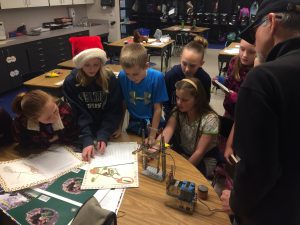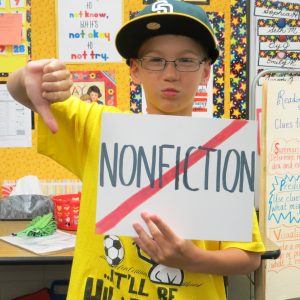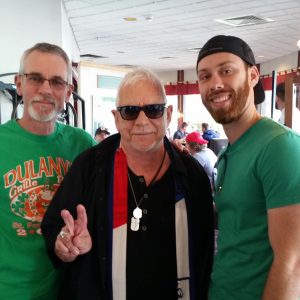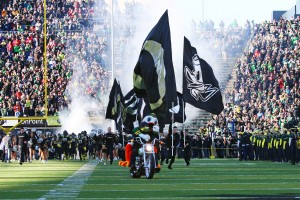Okay, what’s more interesting: art made from chewing gum or a classic building toy?

That’s what these fourth graders were considering (and giving up their recesses!).
Fun times in Mr. Grassman’s class. Enjoy your Explorations!

Okay, what’s more interesting: art made from chewing gum or a classic building toy?

That’s what these fourth graders were considering (and giving up their recesses!).
Fun times in Mr. Grassman’s class. Enjoy your Explorations!
Looking forward to meeting you. I’m especially excited to hear what questions you are going to be exploring. Questions are some of my very favorite things. They are the basis for both reading and writing. If you’d care to share your questions with me, feel free to add them as Comments to this post. I’m headed to San Diego this week, but will be back in time for our visit. See you soon!


Question: What do you think these signs are about? You’ll find out!!
Yahoo, I’m headed back to one of my favorite schools, Pleasant Hill Elementary, to work with third and fourth grade classes! With third graders, we’ll be exploring how writers work and how to help each other become better writers. I’d be interested in knowing from third graders what you like most about writing and what you like least. Also, what questions do you have for me? Feel free to add them as Comments to this post.

Make sure to read the info on the For Kids section of my website. This may answer some of your questions.
Three Questions is a periodic feature of this blog. The focus is on three questions asked of everyday people involved in curious pursuits.
Wayne Stuebing is the subject of Three Questions today. Wayne is pressman, a printing press operator, who works at QSL Print Communications in Springfield, Oregon. Wayne ran the multi-colored press that printed my latest book, Game Day with the Oregon Ducks. He has worked as a pressman for 40 years.
1. How do you become a printing press operator?
It used to be that you would go to a trade school or else get hired by a printing company and work your way up. But now, trade schools don’t train in that area, and it’s a lot harder to get on with a printing company because there are a lot fewer these days.
2. What’s the future of the printing industry?
I think the industry will continue to shrink, but it won’t disappear because there will always be a need to have things printed. What will be interesting is who they’re going to have running the presses since a lot of the operators now are in their late 40s and 50s. Who’s going to replace them?
3. What are the worst and best parts of your job?
The worst part is the pressure, when jobs have to be done within a short time period. You can’t have a bad day; you have to be at your best everyday. The fulfillment is great, though, seeing the results of my work and knowing I did a good job.
I’m walking along an aisle in a Medford, Oregon restaurant. In front of me, a short, older man shuffles along. His short-cropped gray hair and elf-like ears look vaguely familiar, but I pay little notice. Until I get to my seat, that is, and turn around to see that I recognize the man. It’s Eric Burdon!
Eric Burdon, frontman for the Animals, originator of War, songwriter, Hall of Fame singer. Right over there. We had seen him perform the night before, at the Britt Festival. I was with Cameron, Ava’s son. In doing some work for the Festival, he had secured a couple tickets to the show and thought of me. Nice.
Cameron knew I had a history with Eric Burdon, but he didn’t know the extent. Ever since I heard “The House of the Rising Sun” in 1964, I’ve been a follower. “We Gotta Get Out of This Place”, “It’s My Life”, “Paint It Black.” These songs spoke to me, and the way he sang them—raw, gritty—made them even more meaningful. I’ll never forget listening to “Sky Pilot” playing continuously on the jukebox in our high school cafeteria. I was a senior, the Vietnam war was raging, and I was face-to-face with the draft.
Fast-forward thirty years. I was long out of high school, and college for that matter. I was teaching, and writing too. Eric was still making music, but he had undergone some changes as well. His bands changed multiple times, and he added different types of music—funk, jazz, psychedelic—to his repertoire. He continued to tour, but was performing in smaller venues.
In 1998, when I heard he was going to play in a club near me, I called the local paper and asked if they would be doing an article about Eric and his band. They said no. When I offered to write one, they agreed.
I contacted Eric’s publicist and arranged for a phone interview. Most of the interviews I’d done previously had been in person so I was a little concerned about the phone part. What if the connection was bad? What if I didn’t set up the tape recorder correctly? More importantly, though, was what if he was evasive, patronizing, or worse—unresponsive? Simply put, what if he was a jerk?
My concerns were totally unfounded. The technical parts went smoothly. The personal part was even better. He was amiable and patient. He was gracious. We spoke for about a half hour. No rush or hurry. I asked all the questions I had planned, and threw a few more in along the way.
He talked about how a teacher had caught him drawing during class and, instead of reprimanding Eric, had helped him get into art school, which opened up a new world for him. He spoke about how he had been a “gun fanatic” when he moved to the U.S. and how living here had showed him “…what an unbelievably stupid game it is.” He admitted he was not a very good grandfather.
I enjoyed talking to Eric so much that I requested a follow-up interview when he came to town. There was no real reason to do that as my article had already been written and printed in the newspaper. I just wanted to have another conversation. Obviously, I didn’t share that information when I spoke to the publicist. She set up an interview on the day of the show.
I arrived early at the venue, when the band was doing their sound check. Eric was not there yet; he was back at the motel doing his laundry according to the bass player, Dave Meros. I hung around, watched and listened. It wasn’t long before Eric showed. Short and solid as a fireplug, he wore large sunglasses, an over-sized t-shirt, shorts, tube socks, and sneakers. Holding a classic gym bag by the handles, he could have easily been mistaken for a veteran P.E. teacher.
We talked in a back room, with a large table in the center that held snacks and drinks. Eric and I took up the seats at a corner of the table. The rest of the band filled the remaining seats. While Eric and I talked about his music, his plans, and world events, the other musicians ate, drank, joked, and laughed. Drummer Aynsley Dunbar tapped out rhythms on the table.
That was eighteen years ago. Eric Burdon was 57 years old then. Now he’s 75 and I’m standing in a Medford restaurant asking him if he’d take a picture with Cameron and I. Of course he agrees. I don’t mention the interviews long ago, just tell him I enjoyed the show last night and look forward to seeing him again. He smiles and walks off. Slowly.

Okay, we have two great shots, but only one front cover. What to do? I know what some of you are saying: “Put the other one on the back cover.” Sorry, but that doesn’t work. There are front cover shots and there are back cover shots. Don’t try to mix them up.
It was a difficult choice between the two photographs. One has the complete overview of the stadium at the beginning of a game; the other, with the motorcycle, flags, and the team, is a closer look at the same point in time.
Even though the full stadium shot more closely resembles the cover shot of my Game Day: Behind the Scenes of a Ballpark book that I did earlier, I wanted something different for this book. Something more dynamic. More eye-catching. So, I chose the closer look. To make it look even closer, the shot will be cropped and enlarged a bit.
I feel comfortable with the choice. But, what to do with the other shot? I didn’t want to leave it “on the cutting room floor.” It’s just too darn good. That shot will be in the book, right across from the cover page to complete that layout. Perfect!
Thanks to those who made comments and sent e-mails and messages. All of you made good points, which I carefully considered in making a decision. I appreciate your input, and I hope you like the final product.

The winnah! (still to be cropped and enlarged)
Do book covers matter?
Yes, I think they do. It’s what catches a potential reader’s eye, and it can make the difference of someone picking up the book or not. I know that as a reader.
So, when it came time to deciding on a cover for Game Day with the Oregon Ducks: An Insider’s Look at a UO Football Game, it was important to take the time to consider the possibilities. And, there were many. More than 3,000, to be exact.
Yes, ace photographer Jack Liu took that many for the book. Why so many, when fewer than 100 will be used? Because there are so many variables involved, including lighting, facial expressions, and what the action is. The more photos you have, the more options you have in choosing.
From the 3,000 photos, we narrowed it down to two:
Which would you choose?
Three Questions is a periodic feature of this blog. The focus is on three questions asked of everyday people involved in curious pursuits.
Joel Booren is the feature of Three Questions today. Joel is a fourth grader at Ridgeview Elementary School, in Mrs. McCornack’s class. He was the recent winner of the Human Hall of Fame Writing Contest, in which students nominated a person to be in the Human Hall of Fame. Joel’s entry was about Martin Luther King, Jr. (see previous post).
1. How did you come to select Martin Luther King, Jr. as the person to nominate?
I remember watching videos about black people and the way they were treated, and what some people were doing about it.
2. Of all you learned about Martin Luther King, Jr., what should people know about him?
They should know how important he was to the civil rights movement and how he helped to fight racism.
3. Two parter: What do you like best about writing? What do you like least about it?
What I like best is that when I write I get to use my creativity. The worst part is how long it takes.
Good job, Joel! Keep writing.
Had a great visit at Ridgeview Elementary yesterday in Springfield, Oregon. The occasion was to celebrate the recent Human Hall of Fame Writing Contest. I asked kids to nominate and then make a case for that person to become a member of the Human Hall of Fame. (Of course, there is not a HHoF at this time, but hopefully one day there will be.)
I received entries from several different schools, but I’m pleased to announce that Riverbend had the most entries which, of course, provided them with the best odds of winning. And they did! Joel Booren, a fourth grader in Mrs. McCornack’s class, wrote the winning entry about Martin Luther King, Jr. He made a strong case for King, using interesting details in an easy-to-follow organization. There was a strong voice in his writing and I could tell Joel’s commitment to his choice.
Congratulations to Joel, and to everyone who entered. There were many strong entries, which made it very difficult to select a winner. But I think all who entered are winners because they researched and discovered. That’s what learning is all about.
Joel won a signed copy of The Magic of A.C. Gilbert for himself, and a set of the books for his class to use. These books will be shared with the other fourth grade classes as well, so all the students will be able read the book and participate in the activities that go with it.
Congratulations as well to the teachers who guided students in this project. With all the classroom demands these days, I know how challenging it can be to do a project such as this. However, the quality of the writing and the excitement of the kids I saw leads me to believe it was worth the effort.
As I mentioned to the group, Ridgeview is a special place for me. It was there that I did my very first Author Visit during the winter of 1989. Since then, I’ve done hundreds of Author Visits, from as near as my local school to as far as Argentina. But it was that first visit that I remember best, and what a great experience it was!
Gum has a way of sticking with me. For the past week I’ve been working with a producer for CBS’s Sunday Morning program. They’re going to do “something” about gum this week (April 10), and I’ve been providing them with statistics, information, and resources on the topic.
As to what exactly the piece will be about, I don’t know. Maybe I should have asked before getting involved. But what I’ve seen of the show, they do a good job handling topics, even sticky ones!
CBS Sunday Morning airs at different times around the country. Here in Eugene it’s 7 a.m. Other places it’s 8 or 9. Check local listings if you want to take a watch.Chew a piece of gum while you’re at it!